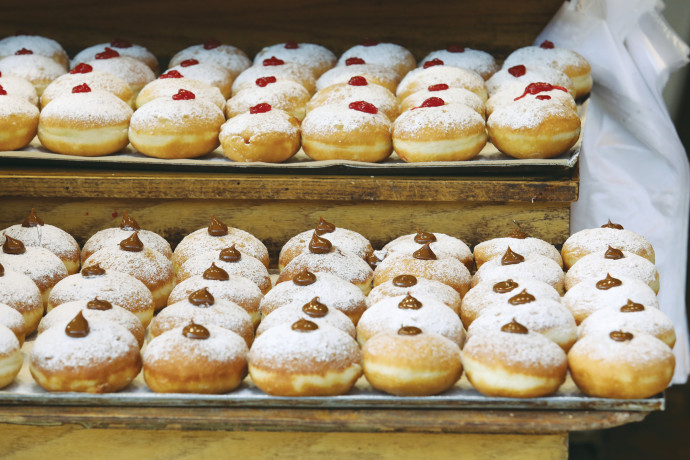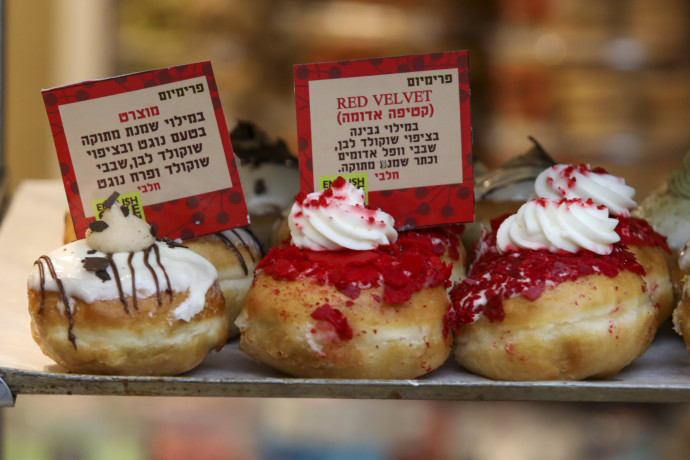Most of us have eaten quite a few donuts this year, and now that Hanukkah is here that number will go up and up.
Israelis eat about 30,000,000 donuts on Hanukkah; on average a person eats between three-four during the holiday. Every year we write about the health price of donuts related to empty calories and high fat, but now it turns out that the ones who pay the real price are the bakers and confectioners who make the donuts.
Bakers are exposed to a particular type of asthma, a disease caused as a result of inflammation of the airways that develops as a result of regular and prolonged exposure to flour.
Bakers are exposed during their work to "flour dust,” as flour is a basic and common raw material in a variety of foods and recipes.

According to the research department of the US Department of Health and Human Services, bakers are 83 times more likely to suffer from work-related asthma than other professions and about 2.5% of bakers suffer from baker's asthma.
Bakers are exposed to flour dust in many processes: grinding, sifting, collecting, storing, transporting, baking, cooking and more. In small bakeries most of the work is done by hand, so there is a high concentration of flour dust at the work stations.The bakers and confectioners exposed to flour develop nasal and eye infections, asthma and dermatitis.
Last August, the Tel Aviv labor court officially recognized that a baker who suffered from lung disease died from a work-related injury. The baker, who died before hearing the verdict in the lawsuit he filed, worked for decades in a bakery and was exposed every day to flour dust and smoke emitted from ovens. He suffered from a chronic lung problem consisting of asthma and other diseases. The judge ruled that although it was known that the worker was a heavy smoker, occupational asthma was the main cause of his death.
Recently, The Israeli Institute for Occupational Safety and Hygiene published new guidelines to ensure the safety of bakers and confectioners in bakeries during Hanukkah and throughout the year.

These regulations are:
> Scrub floors and other surfaces regularly, or depending on the situation, use a vacuum cleaner, and install an efficient ventilation system to prevent the formation of dust clouds (dry flour).
> An efficient air monitoring and air conditioning system must be installed to prevent pollution and intense heat.
> Check microwaves for any radiation leaks and make any needed repairs.
> The burners must be regulated so that combustion is efficient and to reduce the amount of carbon monoxide. It’s important to install detectors with an audible alert in case the carbon monoxide exceeds dangerous levels.
> Workers should use respirators to avoid breathing dust or aerosols.
> It’s important to use proven and safe methods of lifting and moving heavy or bulky loads; use forklifts to facilitate easy lifting of flour sacks, boxes, etc.
Dr. Miki Winkler, Acting Director General of The Israeli Institute for Occupational Safety and Hygiene, said after publishing the guidelines that, “Hanukkah is one of the most beloved holidays for Israelis and bakers and confectioners have a big part in it. It’s our duty to take care of their safety.”
He added that even when high demand requires workers to work around the clock and increase production, it’s important to maintain safety standards in a bakery to prevent occupational diseases that can be caused as a result of multiple exposures to flour dust.
